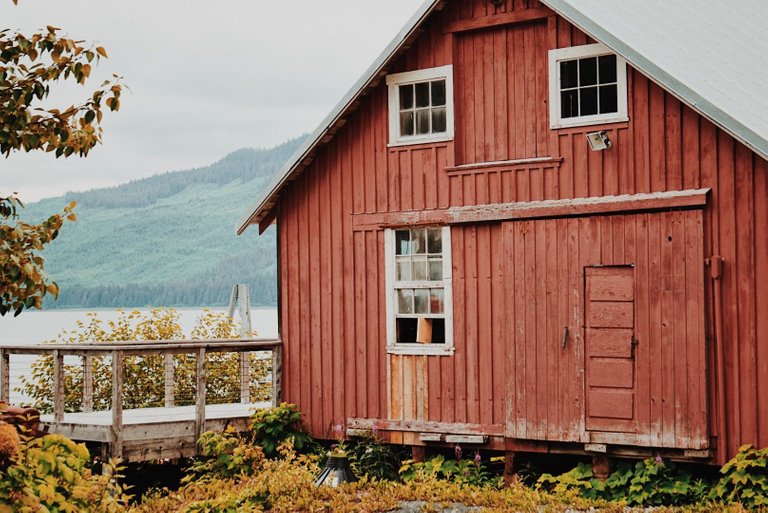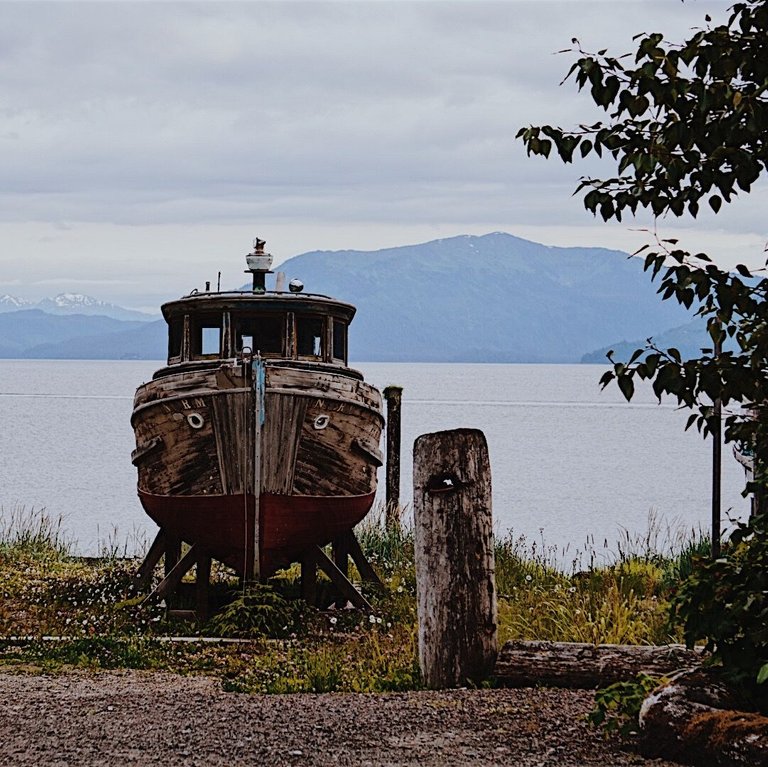
For the Xunaa Mothers
Dear mothers in Hoona,
Do you hear the Raven’s call?
It is carried
by the North wind
you so desired to escape.
You see your husbands,
Your sons,
They leave on wooden canoes.
You worry
they will be gone forever.
But they always return,
More broken than before.
I am sorry.
You want the sun to set,
The harbors to
quietly wash away.
But,
you must not.
Your daughters stand
facing the North wind
alone.

Photos were taken in Hoona, Alaska, with a Sony Alpha5000. VSCO was used for editing.
World of Photography Beta V1.0
>Learn more here<
You have earned 5.35 XP for sharing your photo!
Daily photos: 1/2
Daily comments: 0/5
Multiplier: 1.07
Server time: 15:49:29
Total XP: 39.20/100.00
Total Photos: 7
Total comments: 3
Total contest wins: 0
Follow:
Join the Discord channel: click!
Play and win SBD:
Daily Steem Statistics:
Learn how to program Steem-Python applications:
Developed and sponsored by: @photocontests@fairlotto@dailysteemreport@steempytutorials @juliank
A very powerful write, Horzy:) Well-constructed and deeply felt. Would love a little back story though:)
Sorry, I can understand how the open-end-ness of this could leave a writer unsatisfied.
I traveled to Alaska in 2016 per a family cruise. We stopped at a town called Hoona (or “Xunaa” in the native Tlingit language) on Chicagof Island, if I recall the exact destination correctly. Regardless of where, this town and its Native American Tlingit population were living out a disheartening drama. Hoona was an extremely successful fishing and cannery town in the early-through-mid 20th century. As such, the town experienced an economic boom that, at the time, was a rare occurrence in particular for Native American peoples. The business has since become unprofitable due to a simultaneous decline in fish population and being overtaken by large fishing boats. The community has kind of been stuck in this dreary state of longing, where all the residents can do is but dream of the better days. Right now the only thing really keeping the town afloat is the tourist and cruise ship industry, and from what I had heard, had only left the community feeling patronized. Anyway, at the time of our going, we were told that the Tlingit population of Hoonah was preparing to make a ceremonial canoe trip en-masse to their ancestral and archeological lands. They were driven from their homeland in the 1700’s by aggressive glaciers and a massive flood. Only a month after we had gone to Hoonah, they made the ceremonial trip by taking 40-ft canoes and paddling a literal 30 miles through open ocean water. To this day, I don’t know what the mentality of Hoonah was after that grand trip... If it even changed at all. I simply hope they found some spiritual reassurance and bonded as a people after the experience.
Thank you, Horzy. Your poem intrigued me to ask questions. It did not leave me feeling unsatisfied but I am grateful for the back story:)